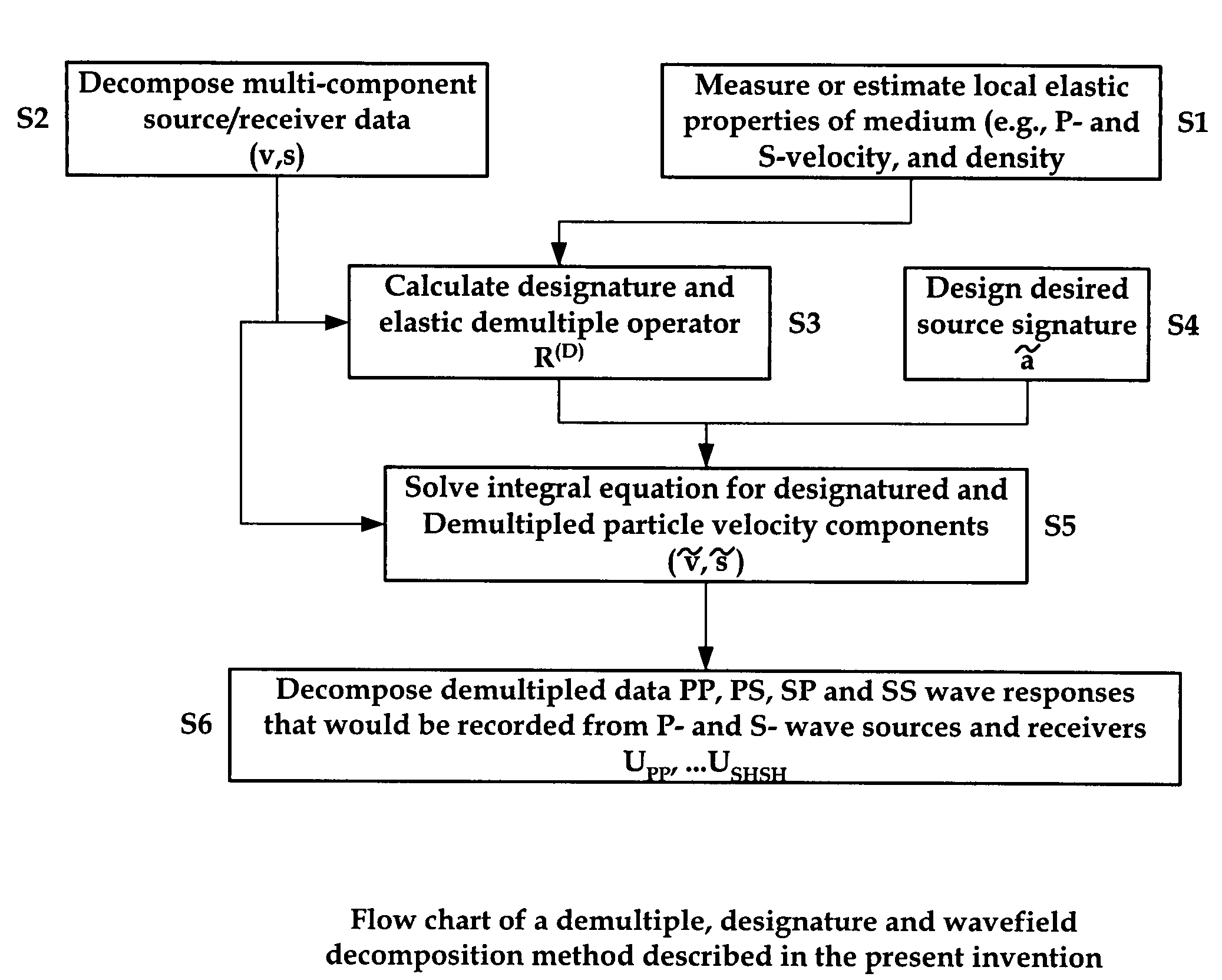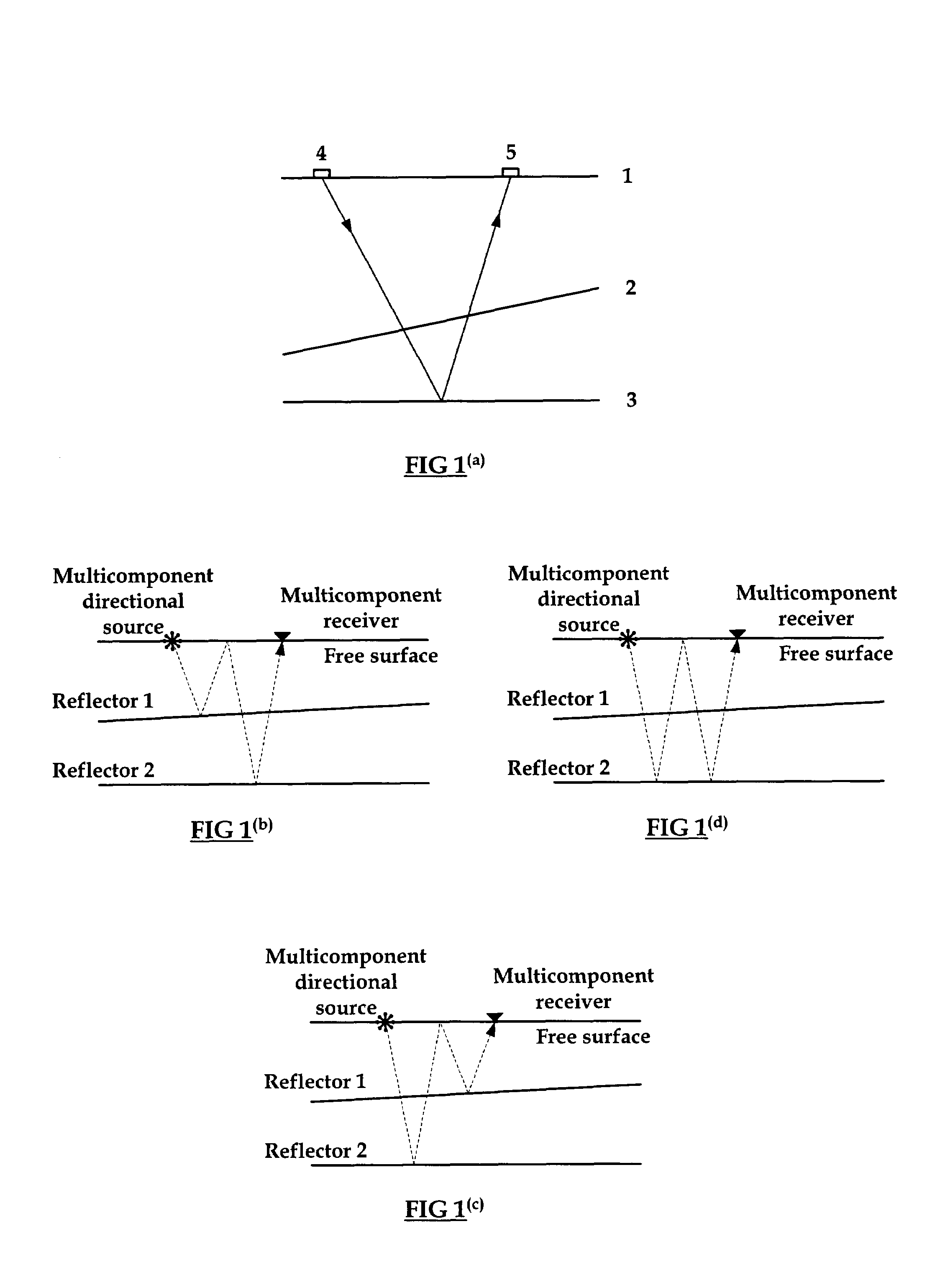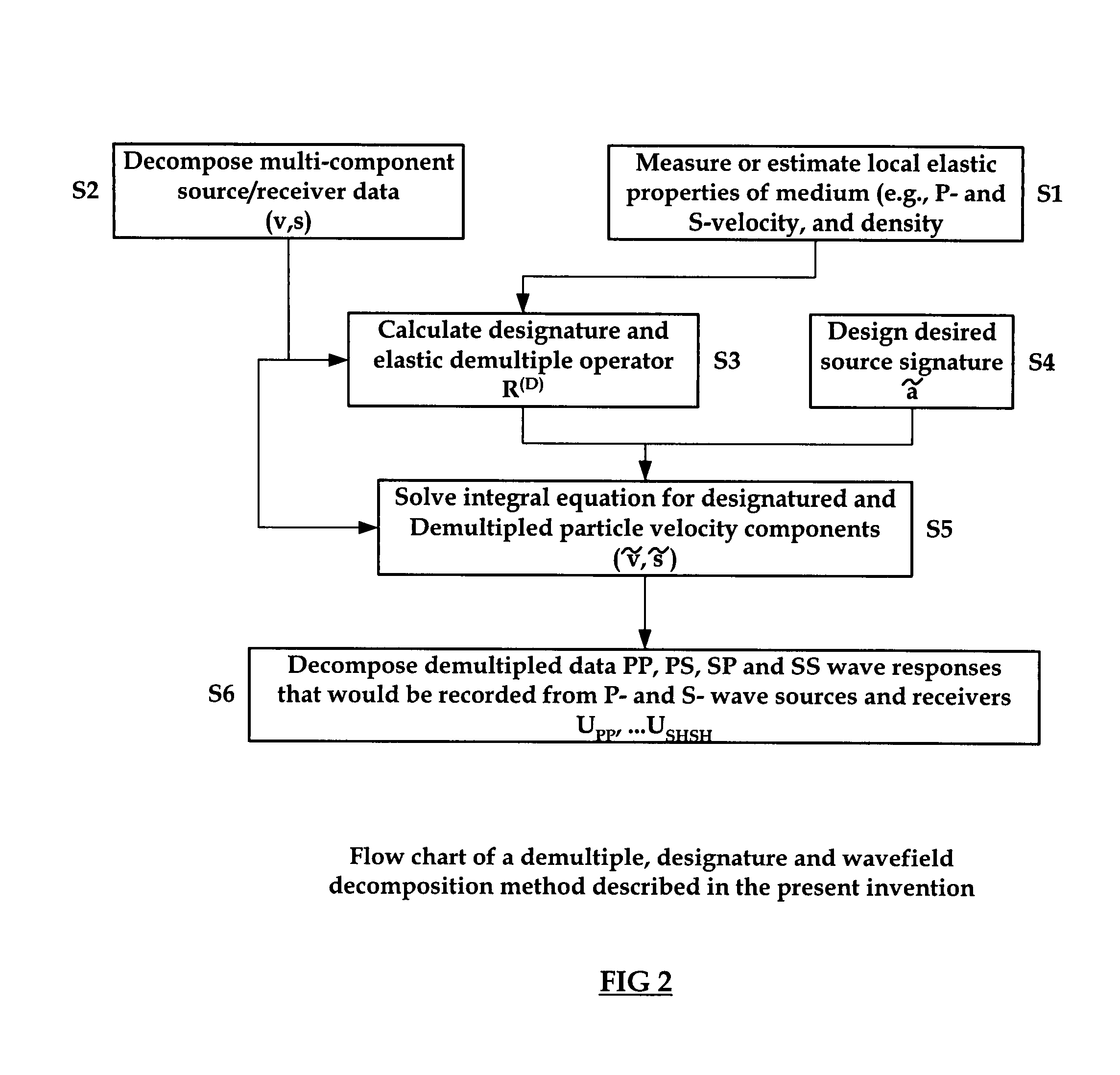Method of and an apparatus for processing seismic data
a technology of seismic data and processing equipment, applied in the field of processing seismic data, can solve the problems of unwelcome events, method does not remove the effects of multiple reflections associated with the seabed, and seismic energy may travel from the source to the receiver
- Summary
- Abstract
- Description
- Claims
- Application Information
AI Technical Summary
Benefits of technology
Problems solved by technology
Method used
Image
Examples
Embodiment Construction
[0059]The principle of one method of obtaining a de-signature and de-multiple operator of the present invention is illustrated in FIGS. 3(a) to 3(c). FIG. 3(a) illustrates an actual seismic survey. This seismic survey comprises a receiver xr (14) that is located at a depth zr. The medium within which the seismic survey is carried out is classified into the overburden for all depths less than the receiver depth (that is for all zr), and as the sub-surface for depths greater than the depth of the receiver (that is, for all z>zr). The overburden is an arbitrary inhomogenous medium.
[0060]A seismic source xs (13) is disposed in the overburden, at a depth less than the depth of the receiver. The seismic source emits both up-going and down-going seismic energy.
[0061]The inhomogenous nature of the overburden is indicated schematically by the presence of interfaces 10, 11, 12 within the overburden. The seismic properties of the overburden change at these interfaces. In the case of a marine s...
PUM
 Login to View More
Login to View More Abstract
Description
Claims
Application Information
 Login to View More
Login to View More - R&D
- Intellectual Property
- Life Sciences
- Materials
- Tech Scout
- Unparalleled Data Quality
- Higher Quality Content
- 60% Fewer Hallucinations
Browse by: Latest US Patents, China's latest patents, Technical Efficacy Thesaurus, Application Domain, Technology Topic, Popular Technical Reports.
© 2025 PatSnap. All rights reserved.Legal|Privacy policy|Modern Slavery Act Transparency Statement|Sitemap|About US| Contact US: help@patsnap.com



